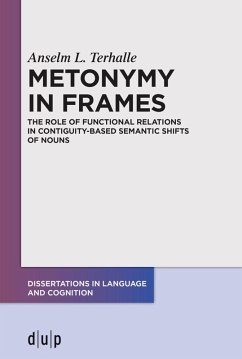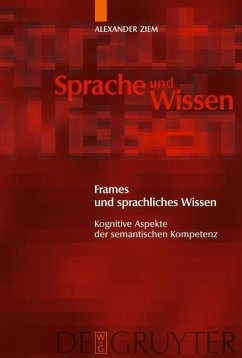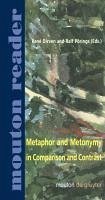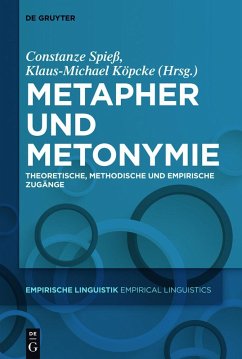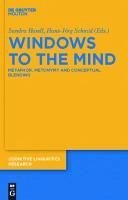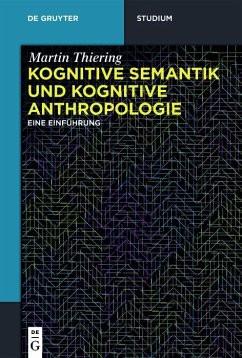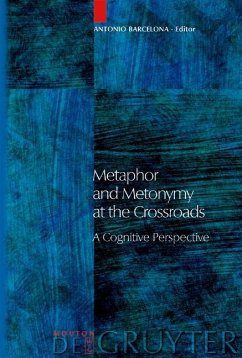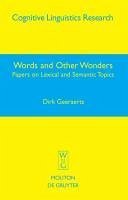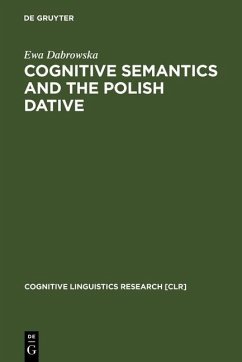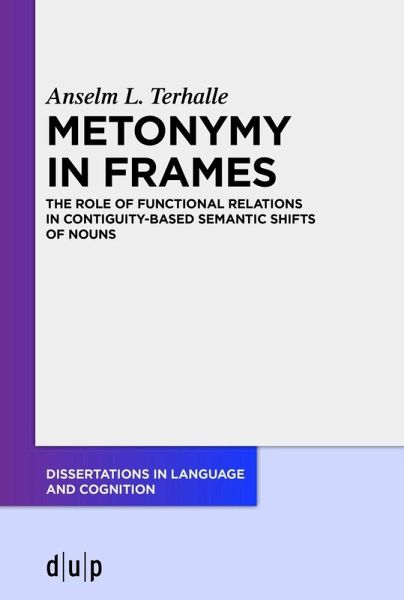
Metonymy in Frames (eBook, PDF)
The Role of Functional Relations in Contiguity-Based Semantic Shifts of Nouns
Versandkostenfrei!
Sofort per Download lieferbar
59,95 €
inkl. MwSt.
Weitere Ausgaben:

PAYBACK Punkte
0 °P sammeln!
This work refines the notion of metonymy and the underlying notion of conceptual contiguity by describing a fundamental structural property of metonymy.Studied since antiquity, metonymy is a ubiquitous mechanism of meaning construction in context that involves a linguistically coded source concept that directs attention to a situationally relevant target concept. Modelling metonymic contiguity by means of recursive attribute-value structures, inspired by findings from cognitive psychology, suggests that the metonymic relation depends largely on the functionality of the source with respect to t...
This work refines the notion of metonymy and the underlying notion of conceptual contiguity by describing a fundamental structural property of metonymy.
Studied since antiquity, metonymy is a ubiquitous mechanism of meaning construction in context that involves a linguistically coded source concept that directs attention to a situationally relevant target concept. Modelling metonymic contiguity by means of recursive attribute-value structures, inspired by findings from cognitive psychology, suggests that the metonymic relation depends largely on the functionality of the source with respect to the target.
Based on this structural property, several patterns can be identified as potential bases for metonymic shifts. How these shifts are coded on the linguistic surface varies depending on whether the focus within the relevant frame is more on the source (metonymy closer to literal use) or more on the target (metonymy closer to word formation). Furthermore, decomposing the contiguity relation into functional relations hints at a potential conceptual distance between the source and target. This approach contributes to understanding the boundaries and possibilities of metonymy.
Studied since antiquity, metonymy is a ubiquitous mechanism of meaning construction in context that involves a linguistically coded source concept that directs attention to a situationally relevant target concept. Modelling metonymic contiguity by means of recursive attribute-value structures, inspired by findings from cognitive psychology, suggests that the metonymic relation depends largely on the functionality of the source with respect to the target.
Based on this structural property, several patterns can be identified as potential bases for metonymic shifts. How these shifts are coded on the linguistic surface varies depending on whether the focus within the relevant frame is more on the source (metonymy closer to literal use) or more on the target (metonymy closer to word formation). Furthermore, decomposing the contiguity relation into functional relations hints at a potential conceptual distance between the source and target. This approach contributes to understanding the boundaries and possibilities of metonymy.
Dieser Download kann aus rechtlichen Gründen nur mit Rechnungsadresse in A, B, BG, CY, CZ, D, DK, EW, E, FIN, F, GR, HR, H, IRL, I, LT, L, LR, M, NL, PL, P, R, S, SLO, SK ausgeliefert werden.




